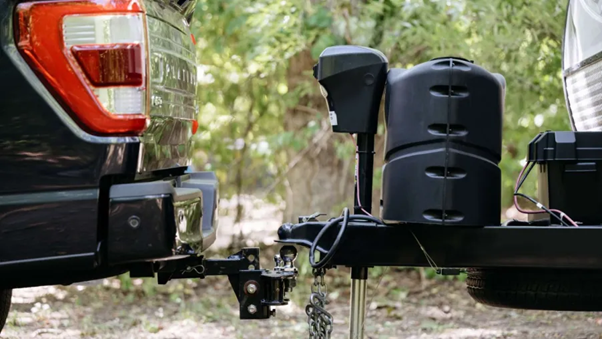Will towing a trailer damage your car?

Heavy loads affect the performance of a car. This is common knowledge and is the reason why pickup trucks are the most common vehicles used to tow a trailer. These vehicles are simply equipped with more powerful engines to take on the added weight. If you are a truck owner, it is still essential to understand the potential risks involved and how to tow a trailer properly to avoid causing damage to your car. Find out about this below along with the correct techniques for safe towing, and the most common towing mistakes to steer clear of.
What Potential Damage Can Towing a Trailer Cause to Your Car?
Towing a trailer introduces additional strain on your car's engine, transmission, suspension, and braking systems. Some potential damage that towing a trailer can cause includes:
Transmission Overheating
Towing a heavy trailer can put excessive stress on your vehicle's transmission, leading to overheating. Continuous high temperatures may cause transmission fluid breakdown and damage internal components.
Brake System Strain
The added weight of the trailer increases the stopping distance, straining the brake system. This can lead to accelerated brake pad and rotor wear, reducing braking efficiency.
Suspension Wear
Towing a trailer places extra weight on the rear axle, which can cause suspension components to wear out faster than usual.
Reduced Fuel Efficiency
Towing trailer results in increased fuel consumption due to the added load, impacting your car's overall fuel efficiency.
Tire Wear
The additional weight from the trailer can cause uneven tire wear, reducing the lifespan of your vehicle's tires.
How to Tow a Trailer Properly
To minimize the risk of damage to your car while towing a trailer, follow these essential tips for safe towing:
Know Your Vehicle's Towing Capacity
Before attaching a trailer, check your car's towing capacity in the owner's manual. Never exceed this limit, as it can lead to severe damage to your car's engine, transmission, and brakes.
Use the Right Hitch and Equipment
Invest in a high-quality trailer hitch that matches your vehicle's towing capacity and the weight of the trailer. Ensure the hitch is securely attached to your car's chassis.
Load the Trailer Properly
Distribute the weight evenly on the trailer and secure the cargo to prevent shifting during transit. The majority of the weight should be towards the front of the trailer, close to the trailer's axle.
Balance the Load
Maintain proper tongue weight, which is the weight exerted on the hitch by the trailer. Ideally, this should be around 10-15% of the trailer's total weight. Balanced tongue weight promotes stability during towing.
Install Trailer Lights and Signals
Ensure all the lights and signals on the trailer are working correctly. Use a wiring harness to connect the trailer lights to your vehicle's electrical system.
To make sure that your car is safe from any of the potential damage above, the key is to tow responsibly. Do not overload the trailer, make sure it is properly secured, and drive gently.